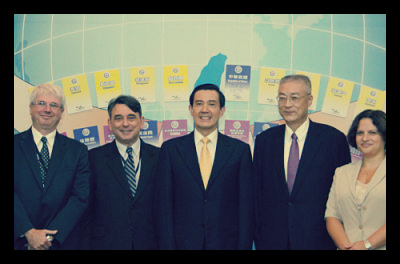Taiwan Takes Firm Stance Against Human Trafficking

October 1, 2013 marked the opening ceremony of the International Workshop on Strategies for Combating Human Trafficking in Taipei City, Taiwan. The workshop serves to stimulate conversation and collaboration for human rights protection and is organized by the National Immigration Agency under the Ministry of the Interior. Around 200 policy experts and officials from Taiwan and abroad attended, including those from Brazil, Canada, Vietnam, the U.K. and 16 other countries.
Vice President of the Republic of China (ROC), otherwise known as Taiwan, Wu Den-yih, took a staunch stance against human trafficking at the opening ceremony. He stated that protecting human rights is a universal value that needs international attention. He also highlighted the firm commitment of the ROC government against human trafficking and violations of human rights.
In the days after the opening ceremony, the workshop hosted six discussion panels ranging from topics pertaining the protecting the youth from sex crimes to trying to prevent modern-day slavery and labor exploitation. Many guest speakers were featured at panels, including officials from the U.S. Department of Homeland Security.
This year was the fourth consecutive year that the U.S. State Department awarded Taiwan the Tier 1 status of the U.S. State Department Trafficking in Persons (TIP) Report, based on the government’s effort to fight human trafficking. While the Department of State places countries into one of three tiers, this ranking has no indication of the prevalence of human trafficking in the country, or lack thereof. The ranking simply acknowledges the effort a government has made to make human trafficking a pressing concern in the national political discourse and to attempt to address the problem.
Nevertheless, Taiwan’s ranking demonstrates its commitment of protecting human rights and ending human trafficking. In recent years, Taiwan has been improving law enforcement training, strengthening support services by building shelters and providing temporary work, and establishing policy strictly prosecuting traffickers, such as the Human Trafficking Prevention Act.
– Rahul Shah
Sources: UNPO, AIT, US State Department
Photo: American Institute in Taiwan
